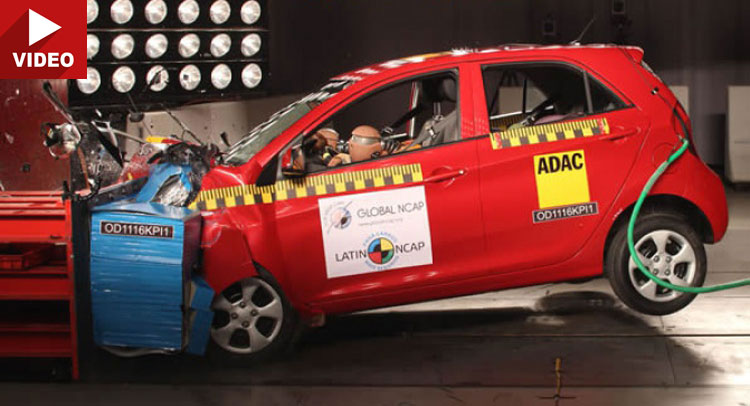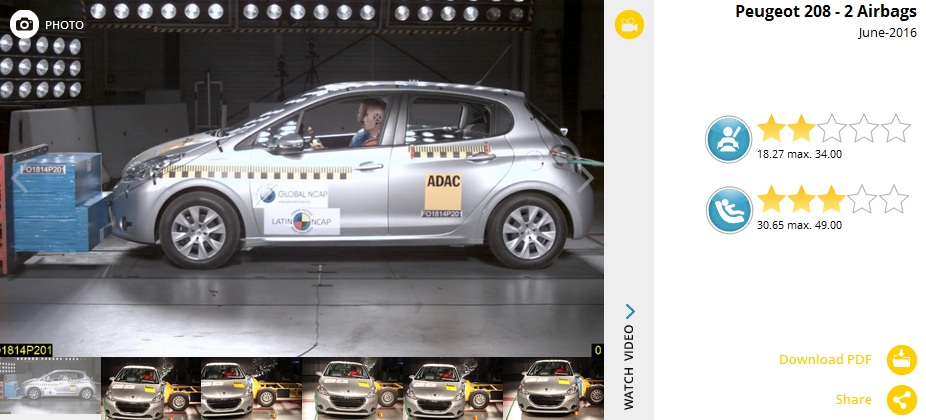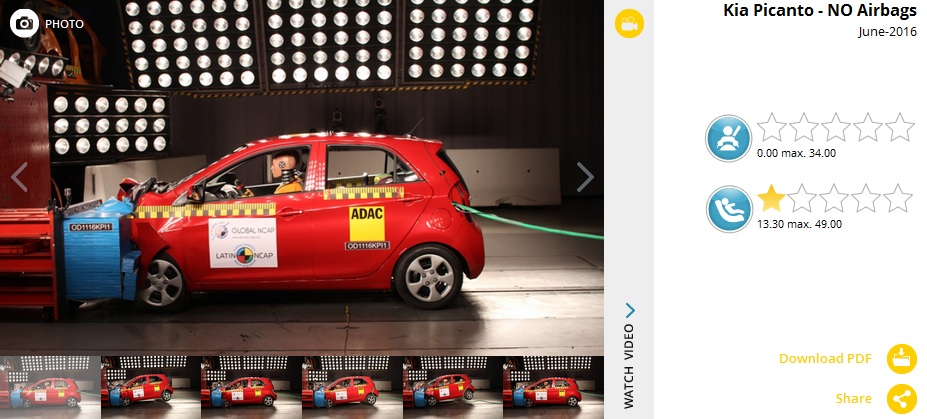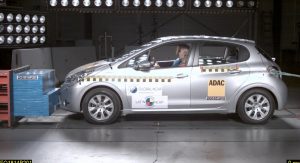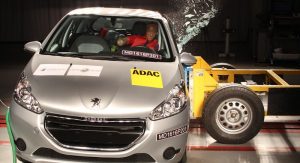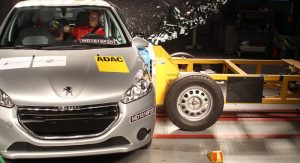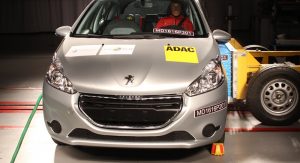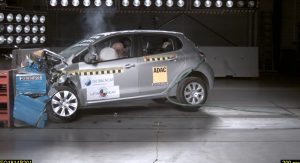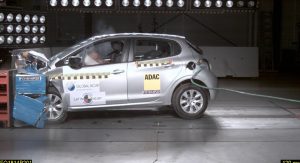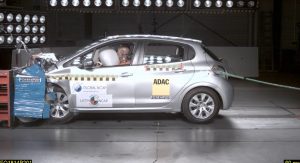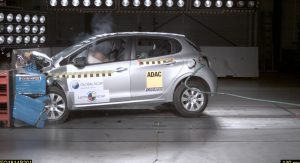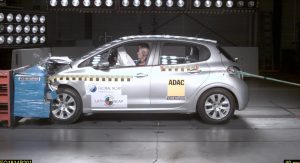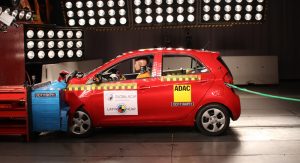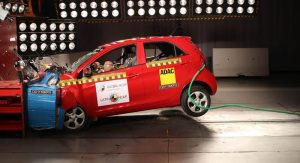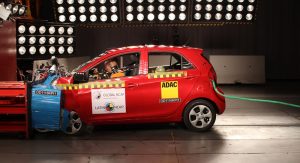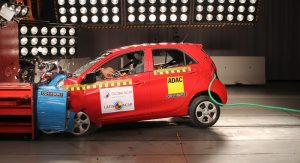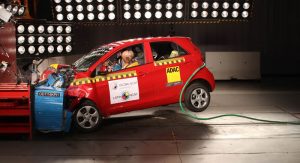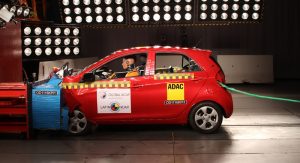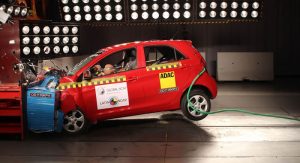The latest crash test session conducted by Latin NCAP continues to raise concerns on cars made specifically for emerging markets, after the Peugeot 208 and Kia Picanto obtained disappointing results.
Originally tested in 2014, when it was awarded a 3-star safety rating, the Peugeot 208, manufactured in Brazil, has lost a star after the side impact tests, for adult protection, added by Latin NCAP. In comparison to its European version, the French supermini lacks side airbags and structural reinforcements, which lead to “high penetration“, dragging it into a “weak side impact protection for head and chest“.
“Latin NCAP is disappointed with Peugeot’s strategy of selling a car made locally without basic side protection mandatory since 1995 in Europe. The Peugeot 208 is considered a high level and successful car in Europe and one of the latest platforms of the manufacturer. Shame on Peugeot“, said Latin NCAP President, Maria Fernanda Rodriguez.
The organization’s Secretary General, Alejandro Furas, demands “UN regulations” to be adopted by governments “if they really care about the problem on safe cars in Latin America and the Caribbean region“, after Kia’s Picanto failed to obtain any stars in the adult occupant protection, with its structure being rated as “stable” in the frontal crash tests.
Despite not testing it in the side impact due to its disastrous results in the frontal tests, Latin NCAP points out that it offers basic side impact structural and interior protection, unlike the more expensive 208. The lack of 3-point seatbelts and wrong instructions manual indications for CRS installation have led to a low score (one star) for child occupant protection.
Poor results obtained by the Kia Picanto and Peugeot 208 follow a series of Indian-made cars, including the Renault Kwid, which failed to obtain any stars for adult occupant protection during the Global NCAP’s crash test session, performed last month.



